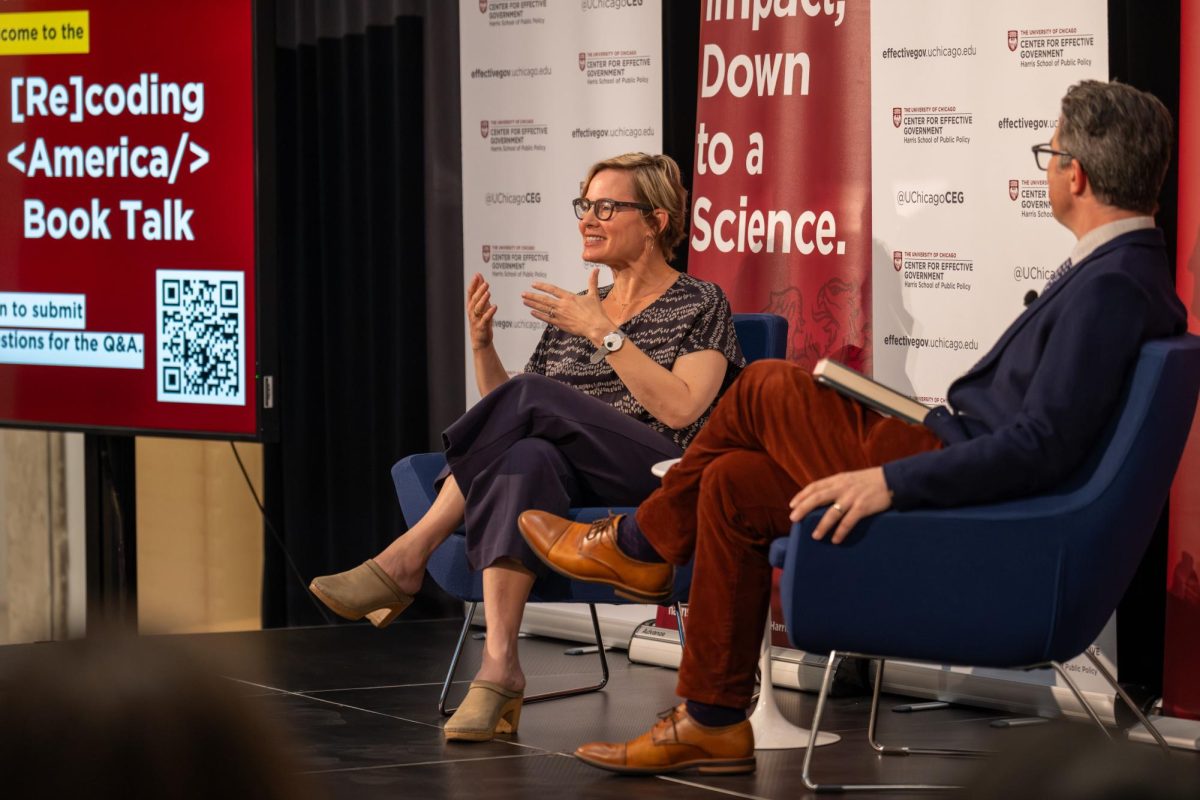Graduate students at the University of Chicago are preparing to push for unionization after a federal agency’s ruling last week made it a possibility.
Last Tuesday, the National Labor Relations Board (NLRB) ruled that graduate students are workers protected under the National Labor Relations Act. The ruling opens the door for the formation of recognized graduate student unions at private universities.
The NLRB’s decision was reached following a petition by graduate students at Columbia University. It overturned the NLRB’s 2004 decision in a case involving Brown University, which barred the formation of graduate student unions at private institutions.
Graduate Students United (GSU), an independent organization of graduate students in the University, will spearhead the effort as it tries to become a recognized union. This process will be carried out by “a system of bylaws [which] govern the transition from an ‘unrecognized’ union, to a card campaign, to a vote to trigger a union, to contract negotiations onward,” wrote Cody Jones, a rising second-year Ph.D. student in the Divinity School, in an e-mail on behalf of GSU. Jones is a member of both GSU and the Student Government Executive Committee.
A card campaign allows employees to organize into a labor union. It requires more than 50 percent of employees to petition for a union, at which point the group may demand recognition. If the University does not recognize the union at this time, a vote would typically be required by the NLRB.
“The entire process is transparent and democratic. The important thing is: the NLRB has declared that the labor we do as RAs and TAs, as graduate students, is work, and that we are workers. As such, we are legally entitled to certain rights, one of which is unionization,” Jones wrote.
President Robert J. Zimmer and Provost Daniel Diermeier released a joint letter to faculty and graduate students last Wednesday in response to the NLRB’s decision. The letter laid out the negative consequences the administration says a graduate student union could have on the University.
“It is vital that we maintain the special and individual nature of students’ educational experiences and opportunities for intellectual and professional growth. A graduate student labor union could impede such opportunities and, as a result, be detrimental to students’ education and preparation for future careers,” the letter states.
The administration’s letter highlighted past efforts to improve graduate student life in the University and the progress that has been made without a recognized graduate student union. But according to GSU, many of these accomplishments are results of graduate student organizing, and therefore prove that a union is useful.
“Dialogue among students and faculty has led to increased stipends…and increased remuneration for teaching, more support for students in the sciences, expansion of health care coverage, [and] childcare grants, [among other career-oriented investments]. It is unclear whether a graduate student labor union would have achieved any of these outcomes,” Zimmer and Diermeier wrote.
Among the achievements listed on GSU’s website are the end of advanced residency tuition hikes, salary increases, and improved care at the University’s Student Care Center.
A recognized graduate student union would try to build on these changes, according to Jones. GSU would work toward “better wages for graduate employees, better access to childcare for graduate employee families, better and cheaper health care, and spousal benefits,” Jones wrote. “In addition, we would expect the removal of mandatory fees, such as the Student Life Fee, as well as a more robust mechanism for filing grievances in the case of something like sexual assault or maltreatment by a faculty or staff member.”
In March of this year, the American Association of University Professors chapter at the University of Chicago wrote a letter in support of graduate student unionization. In the letter, the AAUP asked fellow faculty members to stop holding department meetings with graduate students to talk about unionization.
“Even when such meetings are cast as informational, the inherent power differential between faculty and graduate students can easily result in a coercive and silencing atmosphere, especially when those with official positions such as department chairs and directors of graduate studies are present,” the letter reads. If the meetings were to continue, the AAUP asked that GSU representatives also be invited in to make their case.
GSU formed in response to one of President Zimmer’s first administrative efforts: the $50 million Graduate Aid Initiative. This program “prompted collective outrage that spring by offering decent funding packages to incoming students but doing nothing for the existing grad students,” according to GSU’s website.
GSU, which has more than 700 members out of about 10,000 graduate students, has reported a spike in student interest and membership since the NLRB’s decision.
Unlike graduate student unionization at public institutions, which is determined by individual states’ collective bargaining laws, unionization at private institutions is governed by the NLRB. The recent debate surrounding graduate student unionization has its origins in the NLRB’s 2004 ruling against unionization at Brown University.
President Zimmer, who was Brown’s provost at the time, released the following statement in response to the 2004 decision: “The NLRB’s ruling is of enormous importance to graduate education in the United States. Teaching undergraduate students and conducting research are an integral part of the academic development for graduate students. The NLRB correctly recognizes that a graduate student’s experience is a mentoring relationship between faculty and students, and is not a matter appropriate for collective bargaining.”
Graduate student unions at public institutions have existed for some time, starting with the formation of the Teaching Assistants’ Association (TAA) at the University of Wisconsin–Madison in 1969. In 1997, the TAA won full tuition remission for members; it has also fought over issues regarding the over-work of graduate student employees.
GSU is one of several graduate student organizations working toward unionization at private institutions; others include Graduate Employees and Students Organization (Yale), Graduate Employees Together (University of Pennsylvania), and Graduate Student Organizing Committee (NYU).
While most elite private institutions have been opposed to graduate student unions, some universities have been more receptive. This year at Cornell, the administration signed a “Union-University Conduct Rules and Recognition Election Agreement,” which laid out procedures to be followed in the likely event of a unionization attempt. In 2013, NYU agreed to recognize a union of TAs associated with the United Auto Workers outside of the normal NLRB process.
These recent events regarding graduate student unionization come in the wake of non–tenure track faculty’s decision to unionize this past December. After a mail-in election in late November demonstrated a large majority in favor of unionization (96–22), the University of Chicago’s non–tenure track faculty successfully unionized, clearing the way for contract negotiations.
The Maroon has featured opinion pieces for and against graduate student unionization in the last year.









